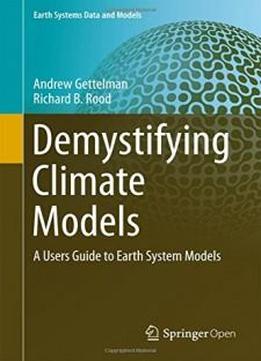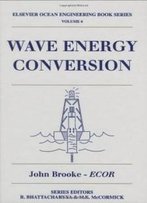
Demystifying Climate Models: A Users Guide To Earth System Models (earth Systems Data And Models)
by Andrew Gettelman /
2016 / English / EPUB
2.8 MB Download
This book demystifies the models we use to simulate present and
future climates, allowing readers to better understand how to use
climate model results. In order to predict the future trajectory
of the Earth’s climate, climate-system simulation models are
necessary. When and how do we trust climate model predictions?
The book offers a framework for answering this question. It
provides readers with a basic primer on climate and climate
change, and offers non-technical explanations for how climate
models are constructed, why they are uncertain, and what level of
confidence we should place in them. It presents current results
and the key uncertainties concerning them. Uncertainty is not a
weakness but understanding uncertainty is a strength and a key
part of using any model, including climate models. Case studies
of how climate model output has been used and how it might be
used in the future are provided. The ultimate goal of this book
is to promote a better understanding of the structure and
uncertainties of climate models among users, including
scientists, engineers and policymakers.
This book demystifies the models we use to simulate present and
future climates, allowing readers to better understand how to use
climate model results. In order to predict the future trajectory
of the Earth’s climate, climate-system simulation models are
necessary. When and how do we trust climate model predictions?
The book offers a framework for answering this question. It
provides readers with a basic primer on climate and climate
change, and offers non-technical explanations for how climate
models are constructed, why they are uncertain, and what level of
confidence we should place in them. It presents current results
and the key uncertainties concerning them. Uncertainty is not a
weakness but understanding uncertainty is a strength and a key
part of using any model, including climate models. Case studies
of how climate model output has been used and how it might be
used in the future are provided. The ultimate goal of this book
is to promote a better understanding of the structure and
uncertainties of climate models among users, including
scientists, engineers and policymakers.











